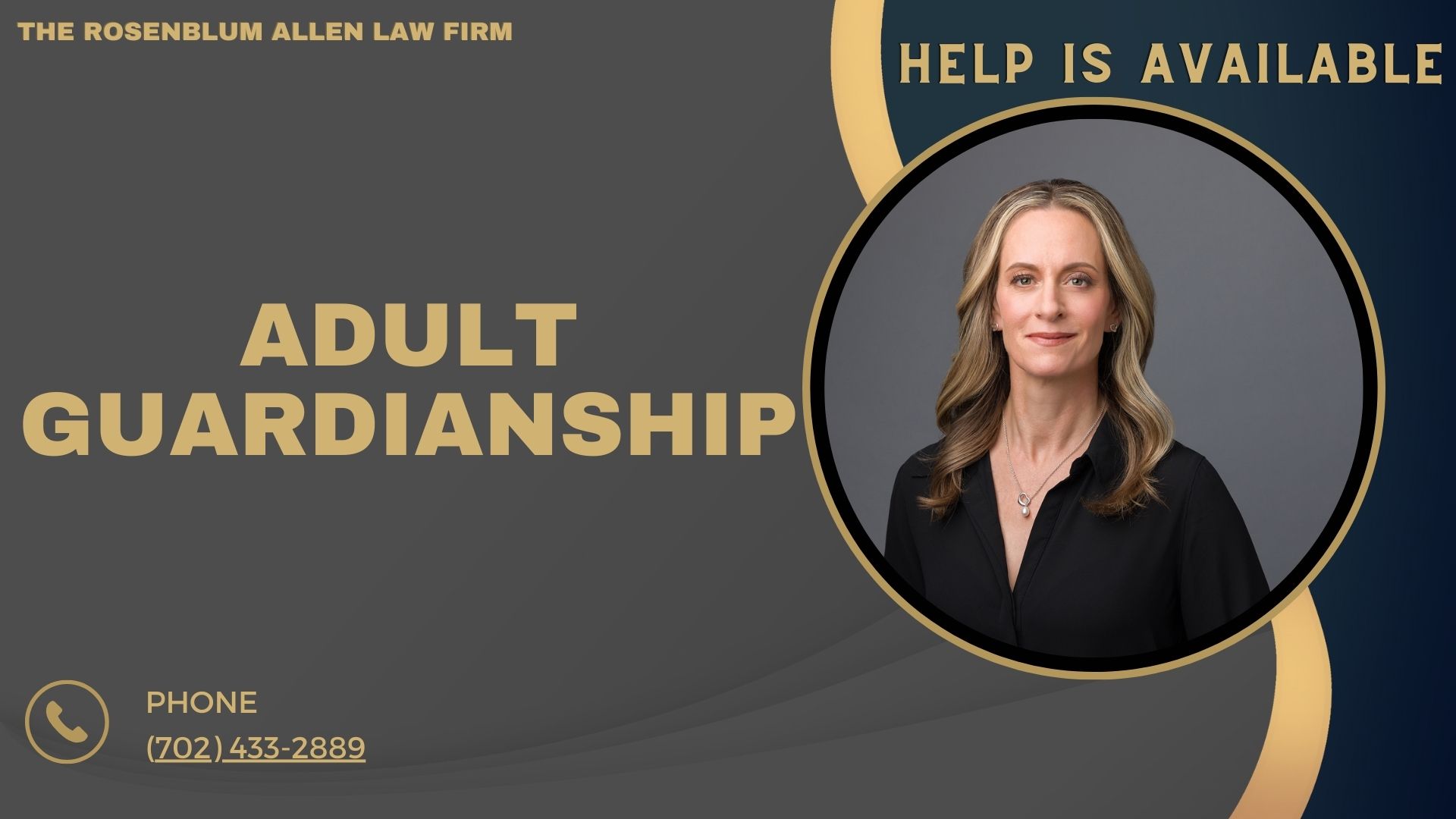- Legal Framework: Each state has laws governing guardianship, which outline how guardians are appointed and their powers. Understanding these laws is essential to navigating the guardianship process effectively.
Purpose of Adult Guardianship
The primary goal of adult guardianship is to safeguard the well-being of vulnerable individuals who cannot manage their affairs. Here are some essential purposes:- Protecting Vulnerable Adults: Guardianship provides a safety net for those who may be at risk of exploitation or harm due to their inability to make sound decisions.
- Decision-Making Support: Guardians assist in making vital choices regarding health care, finances, and living arrangements, ensuring the ward’s best interests are always considered.
Types of Adult Guardianship
Full Guardianship
Full guardianship gives the guardian comprehensive authority over the ward’s personal, medical, and financial decisions. This type is typically used when individuals cannot manage any aspects of their lives.- Characteristics:
- The guardian can make all major decisions on behalf of the ward.
- The ward retains minimal legal rights.
- Circumstances for Full Guardianship:
- Severe cognitive impairments.
- Chronic mental illness that affects decision-making capabilities.
Limited Guardianship
Limited guardianship allows the guardian to make specific decisions while the ward retains some rights. This approach is often favored when the individual can still manage certain aspects of their life.- Explanation:
- The guardian’s authority is restricted to specific areas, such as medical care or financial management.
- This type promotes the ward’s independence.
- Situations Suitable for Limited Guardianship:
- Individuals with mild cognitive impairments who need assistance in specific areas.
- Adults who can make some decisions but require help in others.
Temporary Guardianship
Temporary guardianship is a short-term arrangement typically used in emergencies. It is often granted for a limited period to address immediate concerns regarding the ward’s safety or well-being.- Definition:
- A court appoints a temporary guardian for a specific period, usually until a full hearing.
- Duration and Conditions:
- It often lasts for 30 to 90 days.
- It can be extended if necessary, depending on the circumstances.
The Process of Establishing Adult Guardianship
Assessing the Need for Guardianship
Determining whether adult guardianship is necessary involves thoroughly evaluating the individual’s decision-making capacity.- Signs that Guardianship May Be Necessary:
- Frequent accidents or incidents that suggest impaired judgment.
- Inability to manage finances, leading to unpaid bills or financial exploitation.
- Gathering Evidence of Incapacity:
- Medical assessments from professionals.
- Testimonies from family, friends, or caregivers about the individual’s challenges.
Filing a Petition for Guardianship
The next step is to file a petition with the appropriate court to begin the legal process of guardianship.- Steps Involved in Filing a Petition:
- Identify the correct court (usually probate or family court).
- Prepare necessary documents, including the petition and supporting evidence.
- File the petition with the court clerk.
- Required Documentation and Forms:
- Medical records supporting the claim of incapacity.
- Financial statements and other relevant information that highlight the need for guardianship.
Court Hearing Process
Once the petition is filed, a court hearing is scheduled where evidence is presented.- Overview of What to Expect in Court:
- The judge will review the evidence and listen to testimonies from involved parties.
- Legal representation is highly recommended to navigate the proceedings effectively.
- Roles of Involved Parties During the Hearing:
- The petitioner (seeking guardianship) presents their case.
- The proposed guardian discusses their suitability for the role.
- Depending on their capacity, the ward may also have the right to speak.

The Role of the Guardian
Responsibilities and Duties of a Guardian
Once appointed, a guardian assumes significant responsibilities. These duties can vary based on the type of guardianship but generally include:- Decision-Making: Making crucial choices about the ward’s health care, financial management, and living situation.
- Monitoring Well-Being: Regularly check the ward’s physical and emotional health. This includes attending medical appointments and ensuring they are safe and comfortable.
- Advocacy: Representing the ward’s interests, particularly in legal matters or disputes. A guardian must always act in the ward’s best interest, even if that means making tough choices.
Legal and Ethical Obligations
Guardians also have legal and ethical duties. They must:- Follow the Law: Adhere to state laws and regulations regarding guardianship. This includes filing reports with the court and notifying authorities of any significant changes in the ward’s condition.
- Respect the Ward’s Rights: Even though the guardian has decision-making authority, the ward retains certain rights. This includes the right to privacy and the right to consider their wishes whenever possible.
- Maintain Transparency: Guardians should keep accurate records of decisions made and expenses incurred on behalf of the ward. This accountability helps build trust and ensures proper management of the ward’s resources.
Rights of the Individual Under Guardianship
Understanding Rights
Recognizing that individuals under guardianship still retain some rights, which can vary by jurisdiction, is vital. These include:- The Right to be Informed: Wards should be kept informed about decisions being made on their behalf whenever possible.
- The Right to Participate: They can participate in decisions that affect their lives, especially regarding medical care and living arrangements.
- The Right to Privacy: Guardians must respect the ward’s privacy and confidentiality.
Importance of Advocacy
Advocacy is crucial in ensuring that wards maintain their dignity and autonomy. Guardians should strive to:- Encourage Independence: Support the ward in making choices and regaining control over their lives. This can include helping them participate in activities they enjoy or make small decisions.
- Access to Resources: Ensure the ward can access necessary services, such as counseling, rehabilitation, or financial management assistance. Connecting them with appropriate resources can significantly improve their quality of life.

Alternatives to Adult Guardianship
Power of Attorney
Power of attorney (POA) is a legal document allowing an individual to appoint someone else to make decisions. It serves as a less restrictive alternative to guardianship.- Definition and Differences from Guardianship: POA does not require court involvement, unlike guardianship. It’s often used for financial matters but can also cover medical decisions.
- Situations Where Power of Attorney May Be Sufficient: POA can be ideal for temporarily incapacitated individuals or those who want to retain control over specific decisions while still requiring assistance.
Supported Decision-Making
Supported decision-making is an approach that allows individuals to make their own choices with the help of trusted supporters.- Explanation and Benefits: This method emphasizes the individual’s decision-making ability, with support provided when needed. It promotes independence while ensuring that the individual feels empowered.
- Implementing Supported Decision-Making Strategies: Families and friends can assist by providing information, discussing options, and helping individuals weigh the consequences of their decisions. This approach can be a more respectful and empowering alternative to guardianship.

Understanding adult guardianship is crucial for anyone considering this legal option for a loved one. It involves a significant commitment from the guardian, who must navigate complex responsibilities and uphold the ward’s rights. Knowing the alternatives to guardianship can also help families make informed decisions. Always seek professional guidance to navigate these processes effectively and compassionately. If you need further information or assistance, feel free to reach out!

Frequently Asked Questions
What is the difference between guardianship and conservatorship?
Guardianship typically refers to the arrangement for individuals unable to make personal decisions, while conservatorship often pertains to managing financial matters for someone unable to handle their finances. The terms can vary by state, so it’s essential to understand the specific legal definitions in your jurisdiction.
How long does the guardianship process take?
The duration of the guardianship process can vary significantly based on factors like the case’s complexity, the court’s schedule, and any disputes that may arise. Generally, it can take several months from filing the petition to receiving a court decision.
Can guardianship be contested?
Yes, guardianship can be contested. Family members or other interested parties can challenge the appointment of a guardian in court. This typically involves presenting evidence that the proposed guardian is not suitable or that the individual does not need a guardian.
What happens if a guardian fails to fulfill their duties?
If guardians fail to meet their responsibilities or act against the ward’s best interests, they can be held accountable. Interested parties can petition the court to remove the guardian and appoint a new one. Serious breaches may also lead to legal consequences for the guardian.
Can an adult under guardianship regain their rights?
An individual under guardianship can petition the court to terminate or modify the arrangement if their circumstances improve. This process usually involves demonstrating that they can make decisions independently.
What are the financial responsibilities of a guardian?
Guardians are responsible for managing the ward’s finances in their best interest. This includes budgeting, paying bills, and managing assets. They must keep accurate records of all financial transactions and may be required to report to the court regularly.
Is it possible to establish guardianship for someone who lives in another state?
Yes, it is possible, but the process can be more complicated. Generally, you need to follow the state’s guardianship laws where the individual resides. It may also require collaboration between courts in both states.
How can I prepare for a guardianship hearing?
Preparation for a guardianship hearing involves gathering necessary documentation, including medical records and evidence of the individual’s incapacity. It’s also helpful to understand the legal criteria for guardianship and to consult with an attorney experienced in these matters.
What are the costs associated with establishing adult guardianship?
The costs can vary widely depending on factors such as attorney fees, court filing fees, and necessary evaluations. It’s essential to budget for these expenses, as they can add up during the guardianship process. Consulting with an attorney can provide a clearer understanding of the expected costs.
How does a guardian handle medical decisions for the ward?
A guardian typically has the authority to make medical decisions on behalf of the ward. This includes choosing healthcare providers, approving treatments, and making end-of-life decisions. Guardians should always prioritize the ward’s best interests and, when possible, involve them in discussions about their care.

Adult Guardianship: A legal arrangement in which a court appoints an individual (the guardian) to make decisions on behalf of an adult (the ward) who cannot manage their affairs due to incapacity.
Conservatorship is a legal concept similar to guardianship, but it specifically refers to the management of an individual’s financial affairs, often involving a court-appointed conservator.
Decision-Making: The decision-making process or selecting options regarding personal, medical, or financial matters.
Guardian: An individual appointed by the court to make decisions for someone who cannot do so, usually due to incapacity.
Incapacity: The inability of an individual to make informed decisions about their personal or financial matters due to mental or physical conditions.
Limited Guardianship: A type of guardianship where the guardian’s authority is restricted to specific areas of the ward’s life, allowing the ward to retain some decision-making rights.
Power of Attorney (POA): A legal document that grants an individual the authority to make decisions on behalf of another person, typically regarding financial or medical matters.
Temporary Guardianship: A short-term guardianship arrangement appointed by the court, usually established for emergencies or until a more permanent solution is found.
Ward: An individual for whom a guardian has been appointed due to their incapacity to make decisions.
Supported Decision-Making: An alternative to guardianship where individuals receive support from trusted friends or family members to make their own decisions, promoting independence.
Advocacy: The act of supporting or representing the interests of another individual, particularly in legal or medical contexts.
Financial Management: Overseeing an individual’s financial affairs, including budgeting, paying bills, and managing assets.
Petition: A formal written request submitted to the court seeking a specific legal action, such as appointing a guardian.
Ethical Obligations: The moral responsibilities that guardians have to act in their wards’ best interests and respect their rights and dignity.

Additional Resources For You
Our esteemed lead attorney, Molly Rosenblum Allen, Esq, not only excels in her legal practice but also dedicates herself to creating valuable resources for those seeking guidance in guardianship matters. If you’re navigating these complex areas, we encourage you to explore the following comprehensive resources crafted by her:
Las Vegas Guardianship Attorney: A specialized guide for those seeking effective legal assistance in guardianship cases within Las Vegas.
Legal Guardianship: Understand the intricacies of legal guardianship, including the responsibilities and legal processes involved.
Guardianship Forms: Access crucial forms and understand their roles in the guardianship process, ensuring you’re well-prepared and informed.
Guardianship of a Child in Las Vegas: Navigate the specific regulations and considerations for establishing child guardianship in Las Vegas.
Types of Guardianship: Explore the different types of guardianship and the unique characteristics of each, helping you find the best fit for your situation.
Pros and Cons of Guardianship: Delve into the advantages and potential drawbacks of guardianship to make informed decisions.
Dependency Cases: Gain insights into dependency cases, understanding the legal implications and processes involved.
Terminate Legal Guardianship: Learn about the conditions and procedures for terminating a legal guardianship, a critical aspect for many guardians.
Parental Responsibility for Disabled Adults in Nevada: Specialized guidance for parents navigating the responsibilities and legal considerations for disabled adults in Nevada.
Nevada Power of Attorney: Understand the powers and limitations of a power of attorney in Nevada, a crucial tool in legal and health care planning.
Molly Rosenblum Allen, Esq’s commitment to providing comprehensive and accessible legal resources is evident in these meticulously prepared guides. Whether you’re seeking clarity on guardianship issues or looking for specific legal forms, these resources are designed to assist you in your time of need.

Offsite Resources You May Find Helpful
Here are seven offsite resources that provide information about adult and child guardianship:
FindLaw: This online resource provides free legal information, a lawyer directory, and other resources on a wide range of legal topics, including adult and child guardianship.
Justia: Justia offers free legal information and a directory of attorneys for various legal issues, including adult and child guardianship.
American Bar Association: The ABA provides a variety of resources on legal topics, including information on adult and child guardianship.
Nolo: Nolo provides legal information to consumers and small businesses, including articles, blogs, FAQs, and news on adult and child guardianship.
Avvo: This website provides a directory of lawyers, legal advice, and other resources on a broad range of legal topics, including adult and child guardianship.
LegalMatch: This online legal matching service helps individuals find lawyers in their area and provides advice and resources on family law matters, including adult and child guardianship.
The National Guardianship Association: This organization provides educational, training, and networking opportunities for guardians and about guardianship. It’s a great resource for understanding both adult and child guardianship.

What's Next?
Do you need a guardian attorney in Las Vegas?
Look no further!
The Rosenblum Allen Law Firm offers the best services around.
Our team is dedicated to protecting your rights, providing legal advice, and standing as your advocate throughout any case.
When you choose us for your guardian attorney needs, you can trust that we’ll get the job done professionally- every time.
With years of experience helping clients just like you protect their assets and interests, there’s no better choice than The Rosenblum Allen Law Firm when it comes to finding quality representation in Nevada.
Get started now by giving us a call at (702) 433-2889–we look forward to hearing from you soon!




